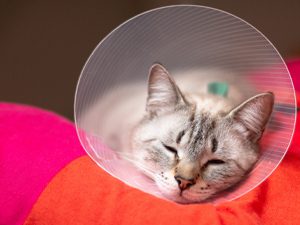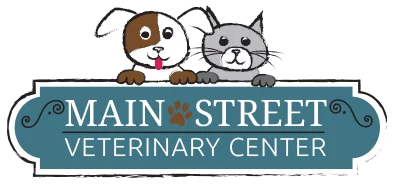Cat Spay: Recovery Timeline & What to Expect
When you decide to spay your cat, you’re making a responsible choice for their health and well-being. This blog is designed to guide you through the cat spay recovery timeline, highlighting what you can expect during this period. We’ll cover everything from the initial recovery phase right through to your cat’s full return to their playful, energetic self. If you have any questions or need to schedule an appointment for your cat’s spay procedure, please reach out to us at Main Street Veterinary Center in Bartow, FL, at (863) 534-9584. Our friendly team is here to support you and your cat every step of the way.

The First 24 Hours After Surgery
The first day after surgery is a critical time for your cat. They might feel a bit groggy or disoriented due to the anesthesia. It’s normal for your cat to have little appetite and to prefer resting quietly in a comfortable spot. Our team at Main Street Veterinary Center advises keeping your cat indoors in a warm, quiet area to prevent any stress or injury. Also, make sure water is easily accessible. If you notice anything that concerns you, such as excessive lethargy or a lack of interest in water, give us a call right away.
Days 2-4: Monitoring and Care
As your cat starts to shake off the grogginess from the anesthesia, you’ll notice a gradual return to their normal self. However, it’s crucial to keep their activity level low to avoid stress on the surgical site. Keep an eye on the incision for any signs of redness, swelling, or discharge, which could indicate an infection. During this period, your cat should continue to stay indoors and away from other pets to ensure a smooth recovery. If your cat’s behavior or the appearance of the incision worries you, please contact us for advice.
Days 5-7: Increasing Activity
By this time, your cat may be feeling much better and might try to return to their usual activities. It’s important to gradually reintroduce activity to prevent any harm to the healing surgical site. Continue to monitor the incision for healing and ensure your cat is not licking or biting at it. If you’re having trouble keeping your cat calm, we can offer solutions, so don’t hesitate to reach out to us at Main Street Veterinary Center.
Week 2: Follow-Up and Continued Healing
Around two weeks after the surgery, we typically schedule a follow-up appointment to check on your cat’s recovery. This visit allows us to ensure that the incision is healing properly and to address any concerns you might have. By this stage, your cat should be much more active, but it’s still important to keep a watchful eye on their behaviors and the healing process. If all is going well, we’ll give you the green light to gradually return to your cat’s regular routine.
Long-Term Care and Considerations
After your cat has fully recovered from the spay procedure, there are few long-term health considerations to keep in mind. Spaying your cat not only helps prevent unwanted litters but also offers health benefits, including a reduced risk of certain types of cancers and illnesses. We encourage you to maintain regular veterinary check-ups to ensure your cat remains healthy and to discuss any changes in their health or behavior.
Schedule a Spay Surgery with Main Street Veterinary Center
Spaying your cat is a significant step in their health care routine. By understanding the cat spay recovery timeline and knowing what to expect, you can provide the best care for your pet during this period. If you have any questions or concerns, or if it’s time to schedule your cat’s spay surgery, please call us at Main Street Veterinary Center in Bartow, FL, at (863) 534-9584. Our experienced team is here to help you and your cat through the recovery process and beyond, ensuring a happy, healthy life together.
Recent Posts
About Us
Family is family, whether it has two legs or four. At Main Street Veterinary Center, we've spent the last 40 years healing and caring for your pets. As a family-operated practice, we know that family is about more than simply being related. Animals give us the ability to develop strong bonds and feel great compassion for a fellow living creature.
